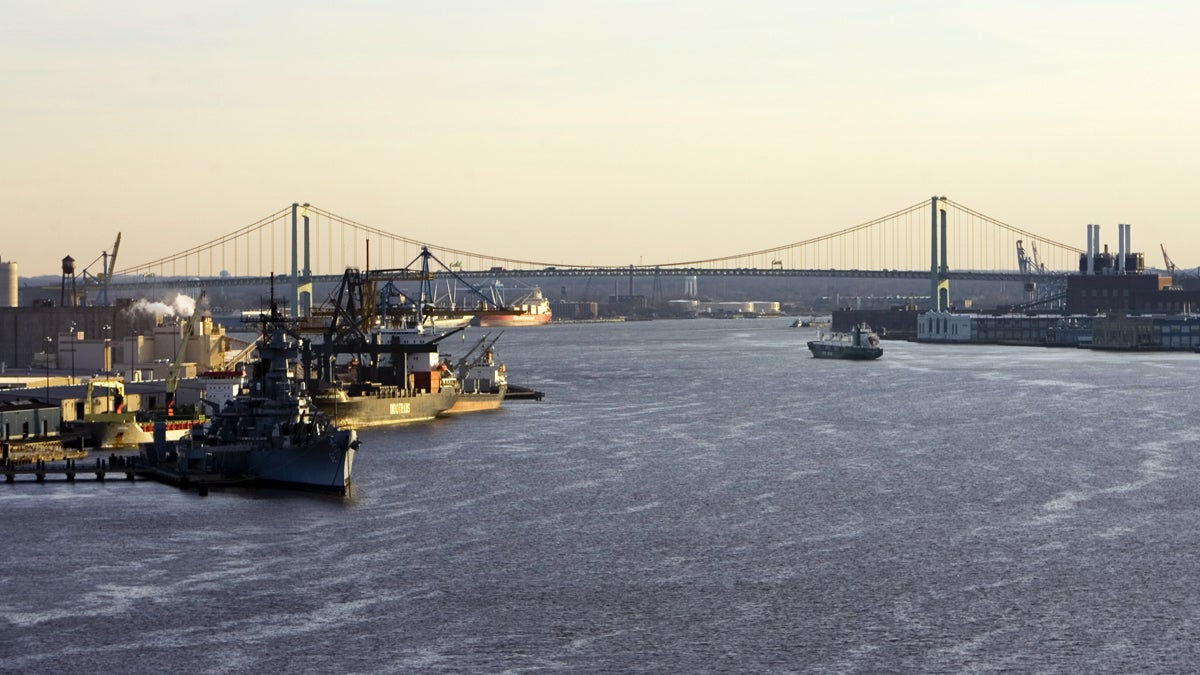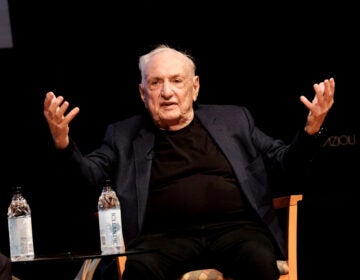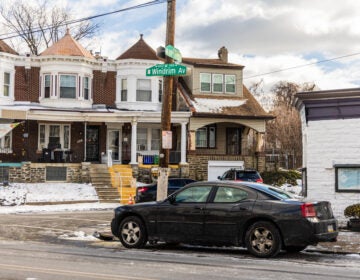Greens and labor come together on the waterfront

The Delaware River between Camden N.J., left, and Philadelphia, right. (AP Photo/Matt Rourke, file)
After such an intensely polarizing election, it’s hard for people to imagine how communities with very different backgrounds might find common ground. But that’s already happening right here in Philadelphia, with labor and environmentalists forging common ground to fight for our city’s future.
For over a year, Gov. Tom Wolf and a state agency under his direction were mulling over a land development plan that boiled down to a simple choice: Would they prioritize jobs and health, or allow a reckless fossil fuel company to further destabilize our communities? Right before the Thanksgiving break, we got our answer: The state will put resources in shipping, preventing job-killing fossil fuels from poisoning our air.
The decision was about what to do at Southport, a 200-acre parcel of land along the Delaware River owned by the state and overseen by the Philadelphia Regional Port Authority. Going into the process, the leading contender was the expansion of the Philadelphia Energy Solutions refinery, which would commit our city to more air pollution and fewer jobs for a generation.
Instead of going down that path, Wolf announced a $300 million investment that will revamp the existing port’s storage capacity, creating far more jobs than an expansion of the massive PES oil and gas dirty energy project.
While this is a win for good jobs at the port, it’s a real victory for the communities that stood up to say no to toxic and deadly oil corporations — the communities that bear the brunt of fossil fuel pollution, and are left to deal, every single day, with substandard air quality and an asthma epidemic that is one of the most serious public health shames of Philadelphia. These city residents deserve a healthier future. And they joined with community advocates, faith leaders, and climate change activists in the Green Justice Philly coalition to send the message that it is time to put stable and healthy communities first.
But these activists had what some might consider an unlikely ally: organized labor. There is a long history of labor and environmentalists being split by a corporate mantra that tells us that protecting the environment comes at the expense of good jobs. Southport is part of a larger trend of rejecting this myth. Climate activists and unions joined forces to fight for a future that respects workers and the environment at the same time, a testament to the fact that “sustainability” is more than a marketing buzzword for eco-conscious consumers — it means creating healthy communities and stable, good-paying jobs for everyone.
As the only remaining undeveloped river land south of the Walt Whitman Bridge, Southport represented our last chance at expanding the Port of Philadelphia. The oil and gas industry spent plenty of money trying to get Wolf to squander a serious job-creating opportunity in favor of building dirty energy infrastructure.
Thankfully, the governor chose wisely. Will Southport be part of something bigger for Philadelphia, a first step towards creating a truly green city that prioritizes public health, good jobs, and clean energy? It’s too early to say, but we know what communities all across the city will fight to see this dream become a reality.
—
Sam Rubin is an organizer with Food & Water Watch. Jed Dodd Is the general chairman of Pennsylvania Federation, BMWED-Teamsters
WHYY is your source for fact-based, in-depth journalism and information. As a nonprofit organization, we rely on financial support from readers like you. Please give today.




